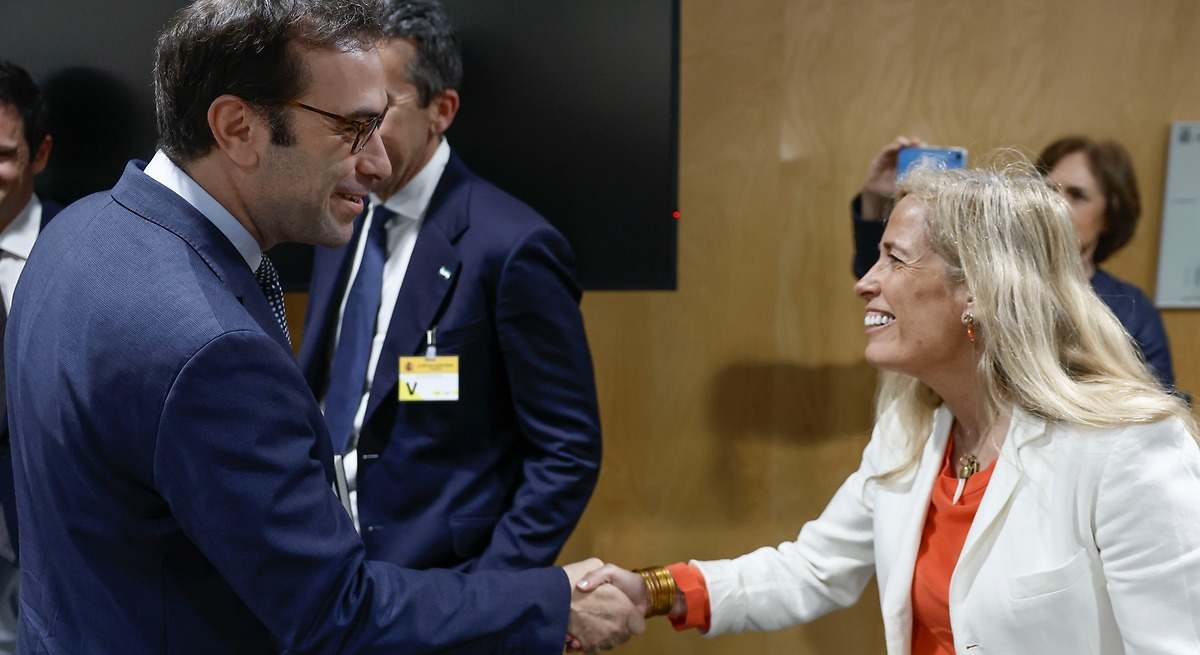Pedro Sánchez, president of the Government, has ended the tour that has taken him through Vietnam and China with a visit to the Chinese president, Xi Jinping, in Beijing, an occasion he has taken to “reinforce the presence of Spain in Asia” and strengthen relations with a country with which he wishes to maintain a “positive agenda” and whom he considers “a partner of the European Union.”
Speaking to the media after his meeting with Xi Jinping, Sánchez explained that “Asia is a continent that is gaining a greater prominence” in an increasingly changing international context and stressed that China is the “second world economy.”
The president, the first president who visits China after the tariff pulse with the US, has defined the Asian country as “a deeply Europeanist country that sees China as a partner of the European Union.”
Therefore, Sánchez has opted to continue exploring growth opportunities in bilateral relations between Spain and China. The Spanish president, using as a pretext the complex international context, has assured that “it is time to expand horizons, redouble efforts to preserve peace, openness and progress in the fight against those global challenges that do not stop at our borders.”
Sánchez has been in favor of leaving the margin tariff tensions between the US and China (this Friday the Asian country has increased tariffs to 125%): “We must not let commercial tensions intervene in the potential growth of our relationship between China and Spain, and between China and the European Union.”
With an eye on the possible negotiations that Spain will have to sustain with the US in tariff matters, Sánchez has made it clear that “Spain’s foreign policy does not go against anyone”, only “in favor of understanding between countries, the defense of the multilateral order and free trade.”
The president’s words take place after the US Secretary of the American Treasury, Scott Besent, charged against Spain’s closeness to China in full pulse through tariffs.
Finally, Sánchez has insisted on the importance of a positive relationship between the Europe and the US union, whom he considers “a historical partner” and with whom he has taken a relationship that “has been mutually beneficial.” In parallel, he also stressed that they seem key to “more balanced” relationships between the EU and China to “find negotiated solutions to our differences” and “greater cooperation in areas of common interest.”
China will export cherries and expand pig products
One of the first consequences of the official visit to China has been the agreement between the Ministry of Agriculture and the General Administration of Customs of China so that the Asian country begins the export of cherries and expanded the pig products exported from Spain.
As reported by the Ministry on its website, the agreement implies “the opening” to the Asian country of cherry export for three years, in which “the processing, packaging, storage and transport of cherries for export” will be supervised by the department directed by Luis Planas, which will also be in charge of “ensuring that only cherries from the registered orchards can enter the selection warehouse for their selection and processed “.
Regarding the expansion of the catalog of the pig products that will be exported, the Ministry emphasizes that it will be valid for five years but automatically extended for periods of equal duration and that “the first Spanish product exported to China is pig meat”, currently being “31% of the sales of Spain” to China.
WhatsAppFacebookTwitterLinkedinBeloudBluesky
“Spain sees China as an EU partner”






